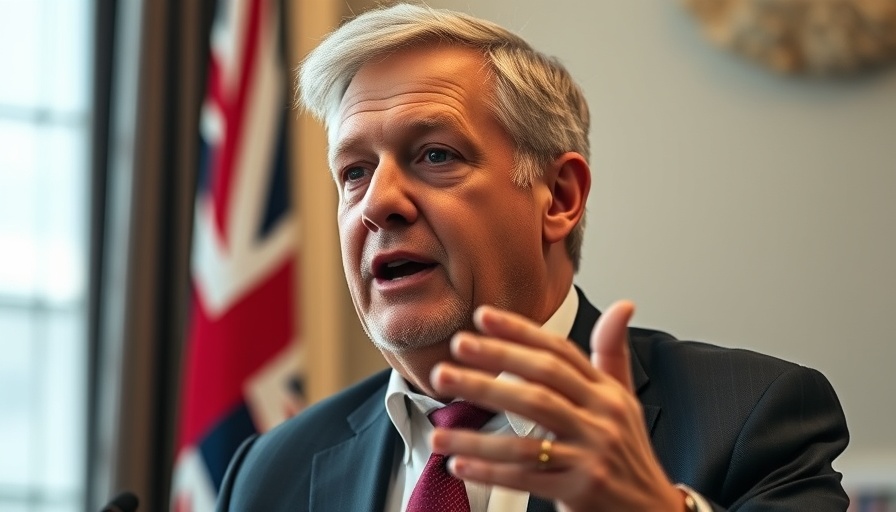
The U.K.'s New Strategy: Establishing 'Return Hubs' for Migrants
In a recent announcement, U.K. Prime Minister Keir Starmer confirmed that his government is in discussions with unspecified third countries to set up 'return hubs' for migrants who have been denied asylum and have exhausted their legal options. This policy, which has drawn criticism and comparison to the controversial plan to deport migrants to Rwanda, seeks to address growing concerns about migration in the U.K. The approach comes as Starmer faces pressure to demonstrate control over immigration, a hot-button issue that has sparked intense debate among voters.
Context Matters: Understanding the Migration Debate
The U.K. has grappled with the issue of migration for over a decade, as successive governments sought to strengthen border controls amidst rising public sentiment that migration levels are too high. The new Labour government's approach signals a shift from the previous Conservative administration's Rwanda scheme, which was viewed as impractical and inhumane by many, including Starmer himself. As the conversation surrounding migrants intensifies, the Prime Minister's proposal highlights a broader conversation about humane treatment and the complexities of global migration.
Climbing Pressure: The Role of Public Sentiment
Starmer's initiative reflects the urgent call from many voters for stricter migration controls. Public attitudes have often swayed politically, influenced by factors such as economic conditions, security concerns, and tragic accidents involving migrants. Recent incidents, such as the tragic drowning of five migrants in the English Channel, underscore the perils faced by those attempting to reach the U.K. and add urgency to this political narrative. The pressure on political incumbents to effectively address these sentiments has never been greater.
Exploring 'Return Hubs': What Are They?
The idea of 'return hubs' is not entirely new. It refers to agreements with third countries where the U.K. can send individuals whose asylum applications have been rejected or who have entered the country illegally. Such facilities aim to deter irregular migration by making it clear that attempts to enter the U.K. without permission will not succeed. Critics argue that this can lead to a lack of accountability for the treatment of migrants in these third countries, raising ethical and humanitarian concerns.
Future Predictions: The Evolving Landscape of U.K. Migration Policy
As the U.K. navigates its position in a post-Brexit world, migration policies will likely continue to evolve. Observers predict that Starmer's government will face increasing scrutiny over how these return hubs will operate and the welfare of those sent there. The international community is watching closely, particularly as discussions touch upon human rights and the rights of asylum seekers.
Diverse Perspectives: Navigating the Controversy
This announcement has sparked diverse reactions, from politicians to humanitarian organizations. While some laud the effort as a necessary step to address unlawful migration, others see it as a potentially draconian measure that disregards the rights of vulnerable individuals. Groups advocating for migrant rights warn that such schemes could lead to human rights violations, urging the government to instead invest in fair processes that respect the dignity of those seeking refuge.
Actionable Insights: What This Means for Migrants
For migrants and asylum seekers, the establishment of return hubs may create a sense of urgency to apply for asylum through formal channels. Individuals already in the U.K. should be aware of their rights and legal routes available to them. Community organizations and legal aid resources will be crucial in guiding them through the complexities of these new policies.
Call to Action: Mobilizing Support for Migrants
As discussions surrounding the treatment of migrants continue to unfold, it's imperative for citizens to engage with these issues. Awareness and advocacy can play a vital role in shaping how migrants are treated in the U.K. Now is the time for individuals, organizations, and communities to come together and champion the rights of those seeking asylum.
 Add Row
Add Row  Add
Add 




 Add Row
Add Row  Add
Add 

Write A Comment